Leading up to KubeCon + CloudNativeCon North America (December 6-8, 2017), the Cloud Native Computing Foundation conducted a survey of our community to learn more about the current landscape of cloud native technologies. More than 550 community members responded; here are a few responded highlights:
- 44% are in the technology industry
- 49% work for North America-based companies; 32% work for Europe-based companies
- 37% identified as DevOps and 29% identified as Developers
- 55% worked at companies under 500 employees
- 28% came from companies with more than 5000 employees
The goal of these surveys, which are issued in advance of our bi-annual conferences, is to understand the state of Kubernetes’ deployments and other container management platforms, as well the progress of container deployment in general. This is the third time CNCF has taken the temperature of the container management marketplace. We continue to include comparisons to other surveys, such as Google’s own Kubernetes Surveys in March 2016 and June 2016 to highlight important trends in this space.
We added new questions that shed light on serverless technologies, Kubernetes ingress providers, and monitoring and logging tools.
You can view the results from our previous survey from CloudNativeCon + KubeCon Europe (March 29-30, 2017) here. This is also the first time we are conducting the survey in Chinese and will publish those results soon.
The container orchestration landscape is changing
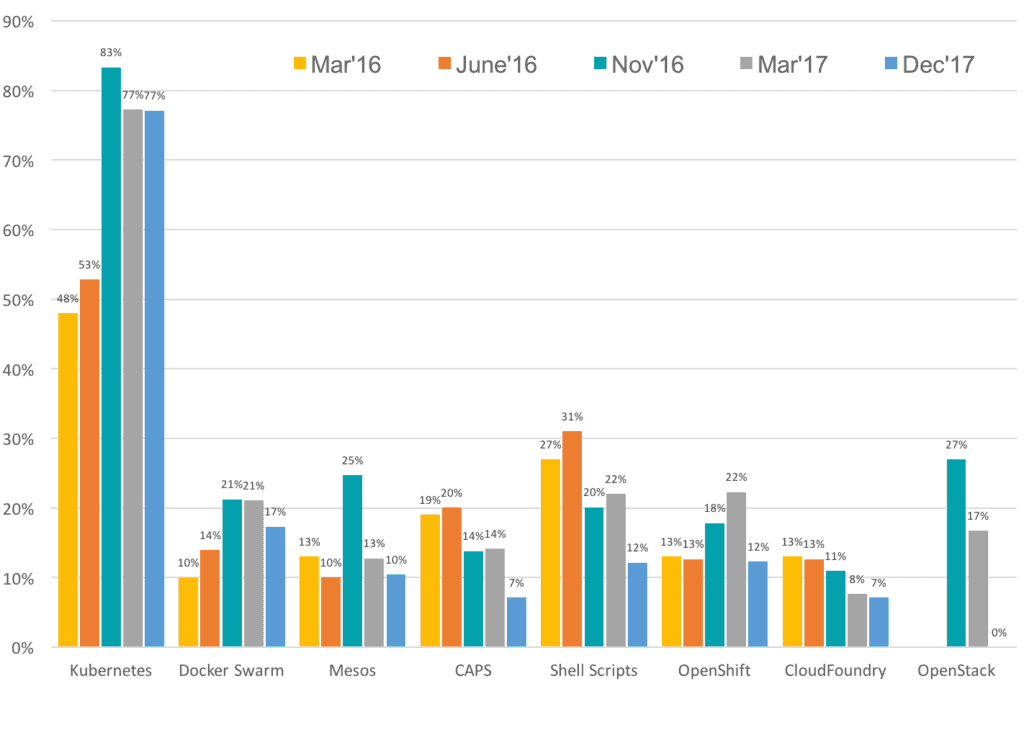
Kubernetes continues to lead as the container orchestration tool of choice. However, we’re beginning to see more respondents choosing managed container orchestrators such as:
Google Container Engine (now Google Kubernetes Engine) (20%), Amazon ECS (18%), and Rancher (9%). These platforms will be included in future graphs so we can track their growth in the container management space.
Based upon our survey data, it would appear that OpenStack’s role in the container space is evolving. OpenStack’s use on a standalone basis for container management is continuing to decline, dropping from 37% in November 2016, to 17% in March 2017, and now to 0% in this most recent survey. Note, OpenStack was not explicitly included as an option in this question; however, no respondents noted its usage in the “other” category. However, many respondents continue to deploy containers on top of the OpenStack platform, in conjunction with orchestrators like Kubernetes(up to 22% in December 2017 from 2% in November 2016).
Container deployment remains strong both on-premise and in the cloud
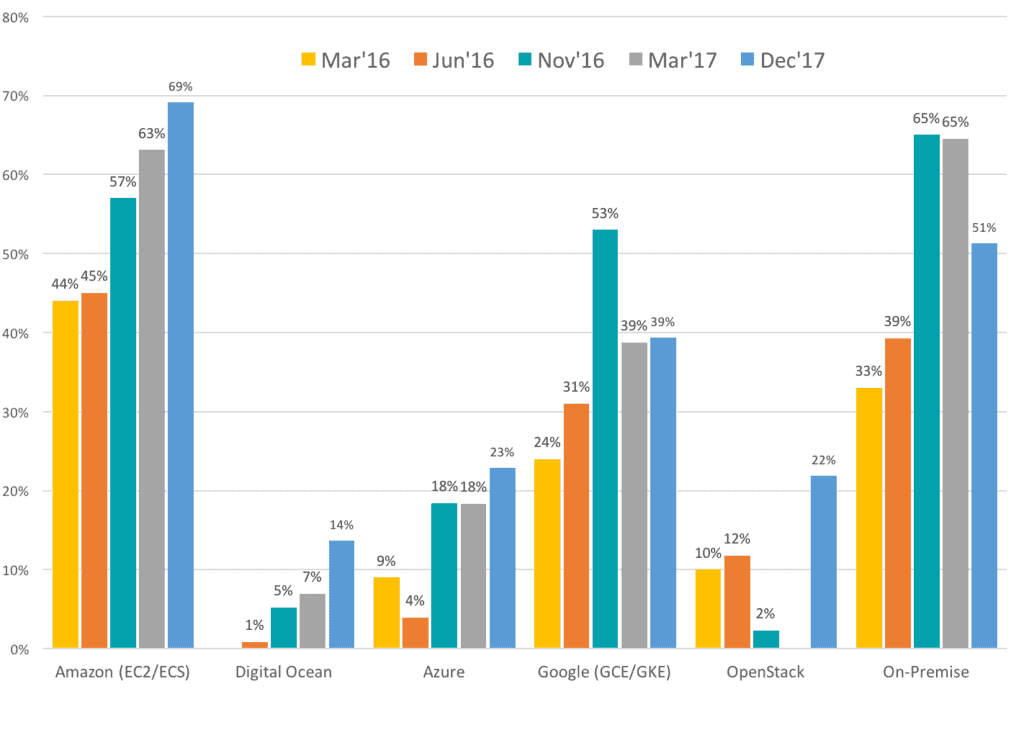
Amazon (EC2/ECS) continues to grow as the leading container deployment environment (69%). Digital Ocean (7% to 14%) is also showing increased usage between March 2016 and December 2017. On premise deployment decreased for the first time in the December 2017 survey since March 2016 (51%), but still remains a leading deployment environment.
This survey is also the first time we’re tracking the following deployment environments: Alibaba Cloud (3%), IBM BlueMix (5%), Oracle Cloud (1%), Packet (2%), SAP Cloud Platform (2%).
The top deployment environments (cloud and on-prem) for Kubernetes are mirroring the results for the top container deployment environments.
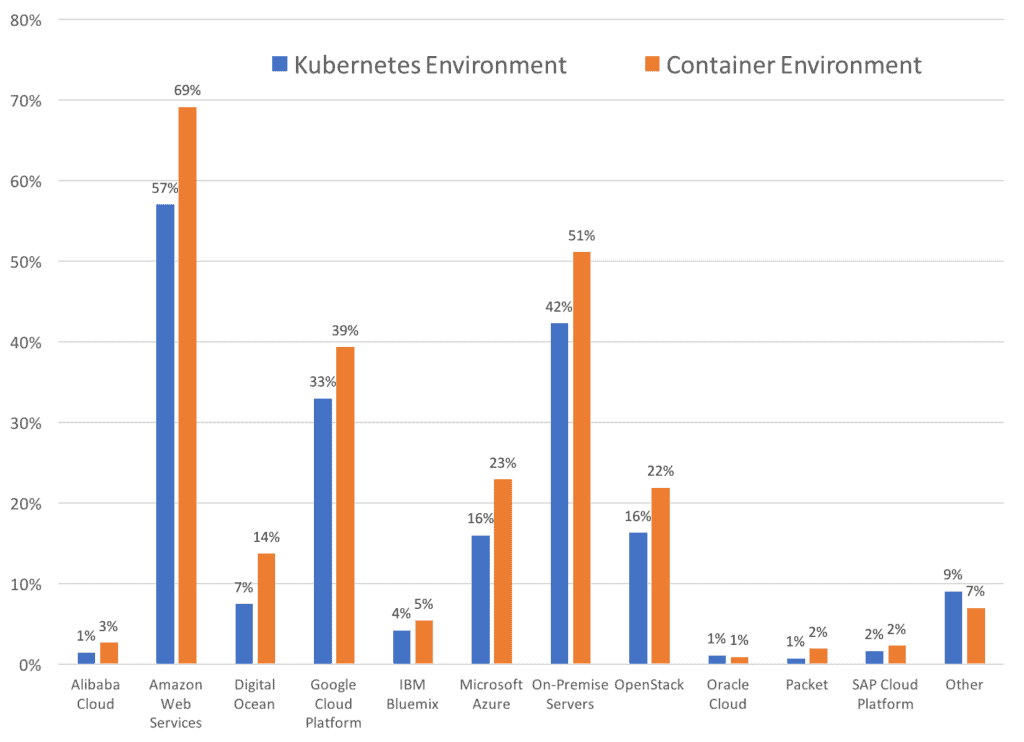
Kubernetes is mostly being run in AWS (57%), On-Premise Services (42%), and Google Cloud Platform (33%).
Kubernetes continues to move from development to production
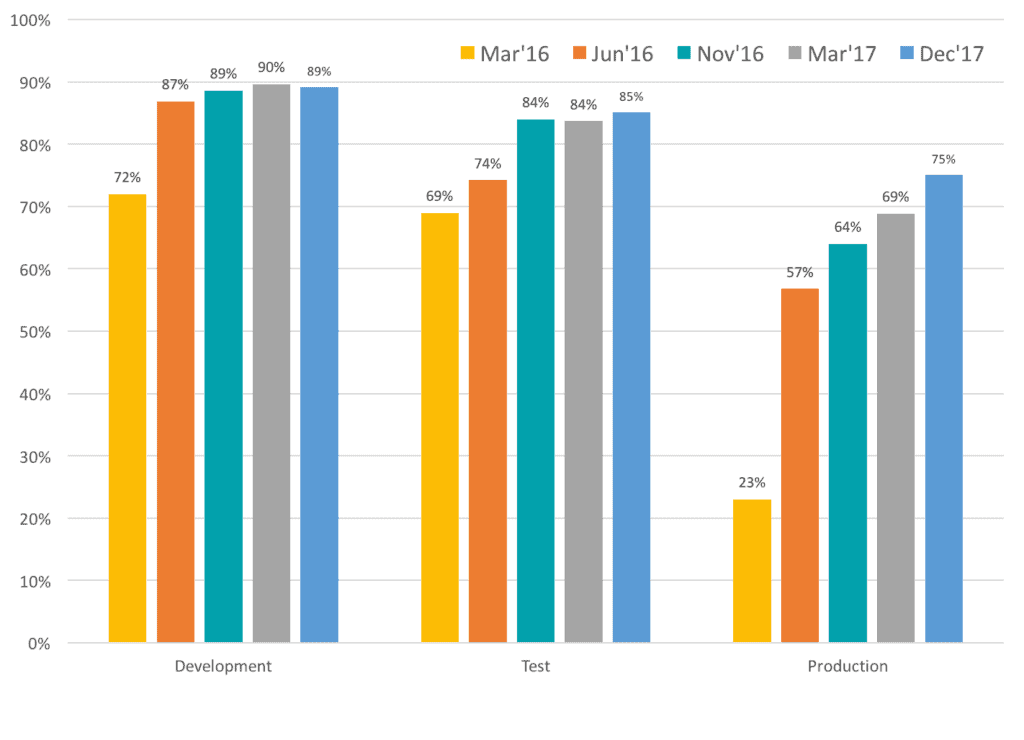
Containers continue to be used across a variety of development stages and increasingly in production (75% up from 69% in March 2016). These survey results are consistent with what we are hearing about more and more companies moving from proof-of-concept (POC) to successful and scalable production applications. Check out these case studies on how companies are using Kubernetes from development to production here.
Similar to the the trend we saw in March 2017, it’s notable that 25% of companies have future plans to expand their container usage into production.
Container usage continues to rise to 250+
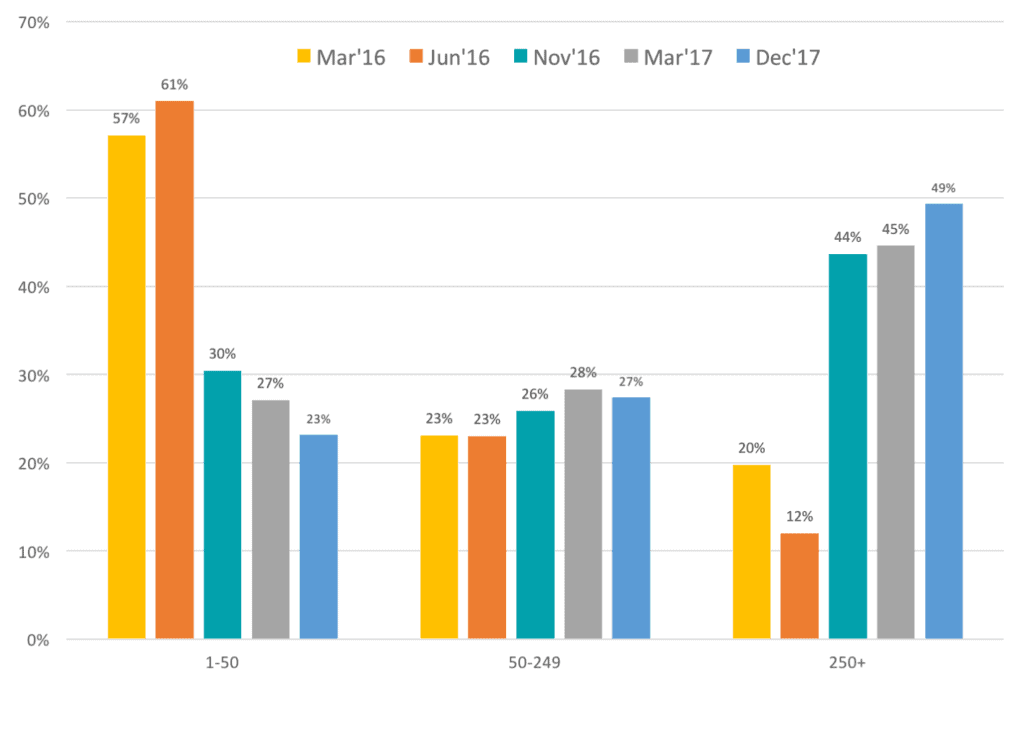
Companies are continuing to deploy an increasing number of containers with 49% deploying 250+ (up from 45% in March 2017). Low-volume deployments (<50 units) decreased from 27% to 23% and high-volume deployments (>5000 units) increased from 11% to 15%.
As container usage expands, new challenges arise
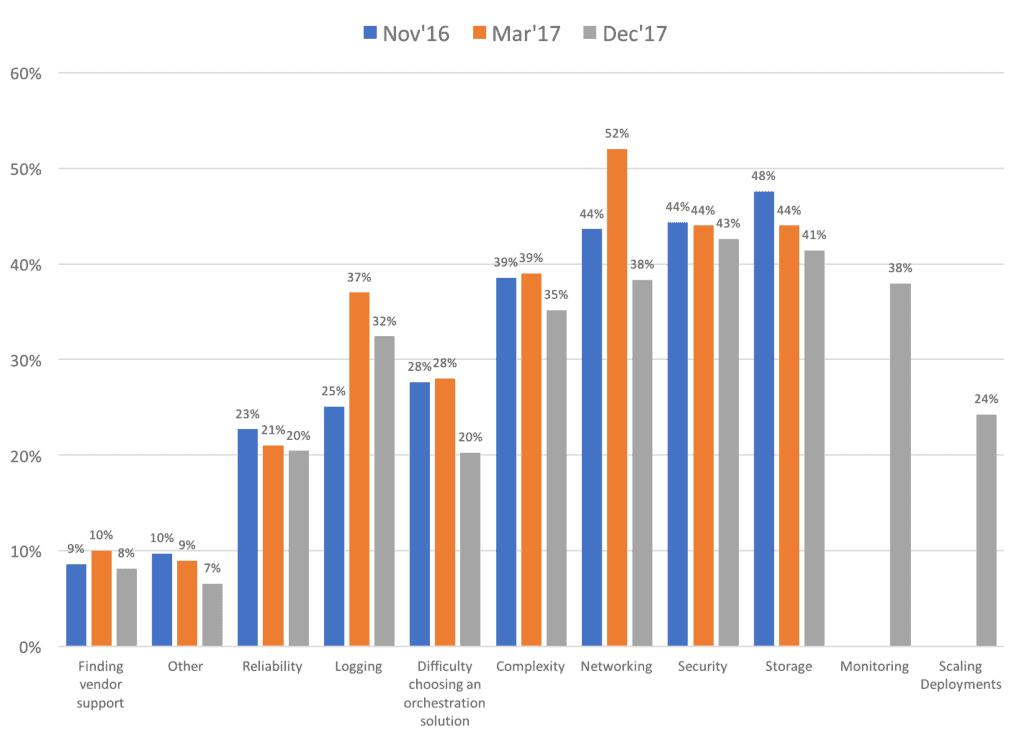
Existing challenges of deploying containers, such as networking, security, and storage, started to decrease across the board. This survey explored new challenges that we expect companies to encounter as they deploy larger volumes of containers. Monitoring (38%) and scaling deployments based upon load (24%) were newly added to the survey and are clearly also important challenges faced by our respondents.
Adoption of CNCF projects
Kubernetes is the most used CNCF project in production (84%), followed by Prometheus (48%), and Fluentd (38%). The growth across CNCF projects remained mostly flat between November 2016 and March 2017 with the exception of gRPC usage in production increased 34%.
Companies are evaluating the following cloud native technologies: Kubernetes (61%), Prometheus (49%), gRPC (29%), OpenTracing (25%).
The expansion of serverless technology
For the first time in this survey, we started to track the usage of serverless technology: 41% of survey respondents currently use serverless technology, while 31% do not. An additional 28% have plans to use it within the next 12-18 months. Of the respondents currently using serverless technology, 70% are using AWS Lambda. Followed by Apache OpenWhisk (12%), Azure Functions (12%), and Google Cloud Functions (13%).
As more companies plan to add serverless technologies to their stacks, the CNCF is working to become the intersection of cloud native and serverless. If you’re interested in getting involved, join our Serverless Working Group.
The future of cloud native technologies
Cloud native technologies are continuing to expand into all sizes of companies and at a greater scale in production. While companies are growing their usage of containers in all facets of their development cycle, they’re also adding new cloud native technologies that complement Kubernetes to their technology stack.
The future of cloud native is exciting, with more than 93% of respondents recommending CNCF technologies.
Upcoming events – Join us to learn more Kubernetes in production
Interested in learning more about how to use Kubernetes and other cloud native technologies in production?
The CNCF’s flagship KubeCon + CloudNativeCon will take place May 2-4 in Copenhagen. The event gathers leading technologists from multiple open source cloud native communities to further the education and advancement of cloud native computing.